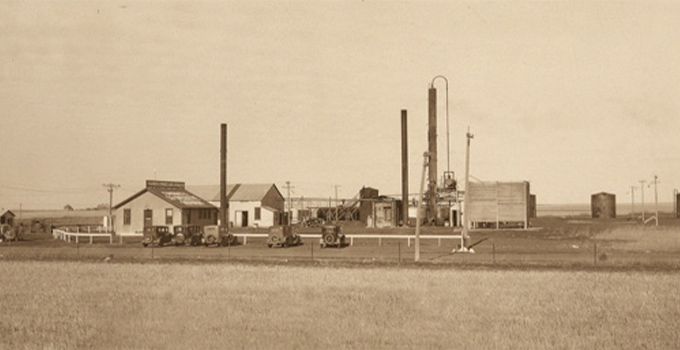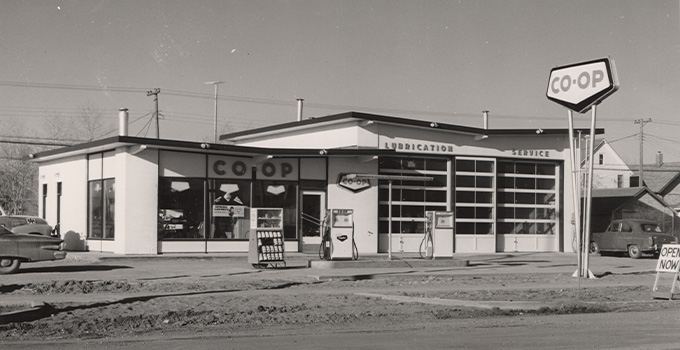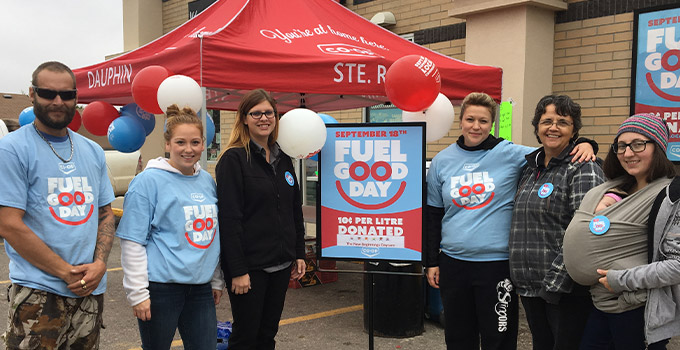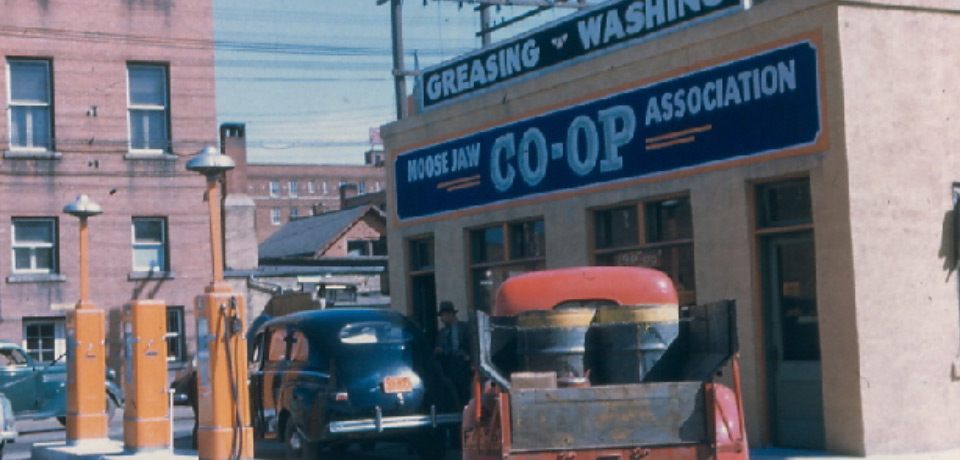At its core, Co-op is about serving the members of our communities. Whether it’s through the local co-op membership programs that give money back to members or through full-service gas bars in freezing Canadian winters, our communities know we support them just as much as they support us.
Humble beginnings
The first gas station in Canada was established in Vancouver at the corner of Cambie and Smithe around 1907. The station was a 59-litre kitchen water tank with a garden hose attached to the side of it. The operator, J.C. Rollston, sat underneath a corrugated tin shed stationed outside of the tank. And voila, Canada’s first gas station was born.
A few years later, what would come to be known as the Co-op Refinery Complex (CRC) entered the Canadian fuel market. This Canadian-owned refinery would come to play a large economic role in the spread of co-operatives across Western Canada.


Eight entrepreneurial farmers created the CRC
In the beginning, the CRC was created out of a community’s need for fuel and a few farmers’ decision to take control back from major oil corporations.
In 1935, in the midst of the Great Depression, a group of eight farmers realized that relying on major oil companies was no longer a financially viable option. They decided to take fate into their own hands, creating their own refinery. Doing so, they risked their land and money during the worst economic downturn in the history of the industrial world. This risk paid off, allowing them to establish a petroleum refinery that supplied a small chain of Saskatchewan farmer-owned gas stations.


Known today as the Co-op Refinery Complex, the refinery was the driving force behind the economic ability to fuel the co-operative movement in Western Canada and played a vital role in the agricultural industry. It has long operated as a subsidiary of Federated Co-operatives Limited (FCL).
Community initiatives
The CRC started as a way to provide a necessary product to the community, helping people to survive during the Great Depression by banding together. Today, FCL and local co-ops continue to support communities through programs like Fuel Good Day, donations, and membership benefits.


Plus, many Co-op Gas Bar locations provide a full-serve option. No matter what the weather, we’re here for you.

